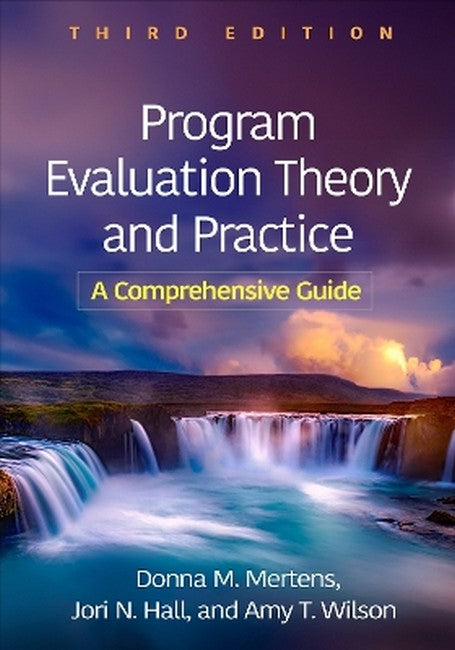Description
Preface I. The Landscape of Evaluation 1. Introduction to Evaluation: Defining Terms and Ethical Considerations 2. History of Evaluation and Philosophical Frameworks II. Evaluation Paradigms, Branches, Theories, and Approaches 3. The Postpositivist Paradigm and the Methods Branch 4. The Pragmatic Paradigm and the Use Branch 5. The Constructivist Paradigm and the Values Branch 6. The Transformative Paradigm and the Social Justice Branch 7. The Indigenous Paradigm and the Needs and Context Branch III. Planning Evaluations 8. Working with Stakeholders: Establishing the Context and the Evaluand 9. Evaluation Purposes, Types, and Questions 10. Evaluation Designs 11. Data Collection Strategies and Indicators 12. Stakeholders, Participants, and Sampling 13. Data Analysis and Interpretation IV. Implementation in Evaluation: Communication and Utilization of Findings, Management, Meta-Evaluation, and Challenges 14. Communication and Utilization of Findings 15. Meta-Evaluation and Project Management 16. Perennial and Emerging Challenges in Evaluation Author Index Subject Index About the Authors
Donna M. Mertens, PhD, is Professor Emeritus in the Department of Educational Foundations and Research at Gallaudet University. She continues to pursue an active professional life, consulting about evaluations across the globe and, of course, writing about methodological issues and social justice. A past president of the American Evaluation Association (AEA), Dr. Mertens has received AEA's highest honors for service to the organization and the field, as well as for her contributions to evaluation theory. She is the author of several books and is widely published in major professional journals. Jori N. Hall, PhD, is President's Distinguished Professor of Educational Psychology at the University of Illinois at Chicago. She is an award-winning author and multidisciplinary researcher. Dr. Hall has conducted evaluations in various fields with historically minoritized communities, and has taught graduate-level courses on culturally responsive evaluation, evaluation theory, and mixed methods. Guided by her extensive training and collaborative experiences, she brings a values-engaged, culture-oriented lens that contributes to responsive, rigorous, and innovative evaluation theory and practice. Amy T. Wilson, PhD, is former Director of Mill Neck International at the Mill Neck Family of Organizations, where she led a team of deaf education specialists sharing their expertise, knowledge, and technical skills with parents, educators, and professionals in economically poor countries. Previously, she was Program Director of the International Development Programs at Gallaudet University. For 20 years, Dr. Wilson engaged in international program development, conducting evaluations in various venues around the world, teaching graduate students, and training people from underserved communities.

